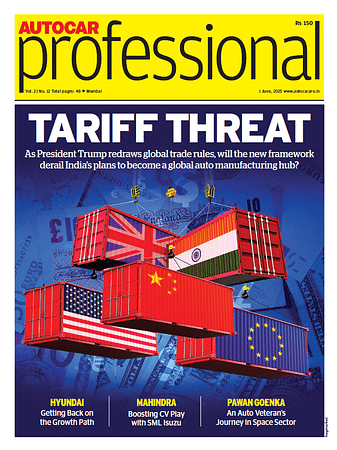Boson Cell Launches India's First Indigenous Lithium Cell Manufacturing
Company introduces two lithium cell variants targeting drone, electric vehicle, and renewable energy sectors with domestic production capabilities.
Boson Cell has launched commercial production of lithium-ion cells in India, introducing two variants designed for applications in drones, electric vehicles, and renewable energy systems. The company announced the availability of its 18350 B-30A and 21700 B-50A cells nationwide on June 4, 2025.
The Chennai-based manufacturer claims to be India's first domestic lithium cell producer, addressing the country's reliance on imported battery technology. The cells offer 1,000 recharge cycles, compared to 350 cycles typically provided by Chinese alternatives, according to company specifications.
India's lithium-ion battery market is projected to reach $9.56 billion by 2030, driven by government initiatives including the FAME II scheme for electric vehicles, the Production Linked Incentive (PLI) program, and the Drone Shakti initiative. These policies aim to boost domestic manufacturing and reduce import dependence in the battery sector.
"We're not only replacing imports but building energy solutions that can power the future of every Indian household, enterprise, and innovation," said Guru Punghavan, CEO of Boson Cell. The company produces cells in three categories: Economy, Advanced, and Extreme variants.
The Indian drone market presents a significant opportunity, with projections indicating growth to $13 billion by 2030. Applications span agriculture, defense, logistics, and infrastructure sectors, creating demand for lightweight battery solutions. Boson's cells are designed to meet these requirements while offering compatibility across multiple applications.
Boson Cell's manufacturing process emphasizes sustainability and includes multi-stage testing protocols. The company offers lower minimum order quantities compared to imported alternatives and provides faster delivery times to distributors.
Distribution channels include electronics retailers, supermarkets, and local stores, with online availability through Amazon, Flipkart, and the company's direct-to-consumer platform. Boson Cell plans to expand its retail presence across India by the end of 2025.
The company has set a target to capture 10% of India's domestic cell market by 2030. Beyond domestic objectives, Boson Cell aims to establish itself as a global competitor in energy storage technology through continued research and development investments.
Cell specifications include high energy density and discharge current capabilities, with applications extending to solar energy systems and power tools. The company's entry into the market supports India's broader energy independence goals and the transition toward renewable energy sources.
RELATED ARTICLES
RBI Rate Cuts Aim to Spur Rural Consumption, Support Auto Sector Revival
A significant part of demand in the automobile sector still comes from rural India, which has been hit in recent times a...
Wardwizard Innovations Announces Resignations of Two Senior Management Personnel
President of Operations and Vice President of Factory Operations step down from positions at electric vehicle manufactur...
Hyundai Acquires 26.13% Stake in FPEL TN Wind Farm with First Tranche Investment
The investment is part of Hyundai's clean energy strategy and aligns with India's growing focus on renewable infrastruct...





 By Angitha Suresh
By Angitha Suresh
 04 Jun 2025
04 Jun 2025
 8196 Views
8196 Views





 Yukta Mudgal
Yukta Mudgal



 Arunima Pal
Arunima Pal

